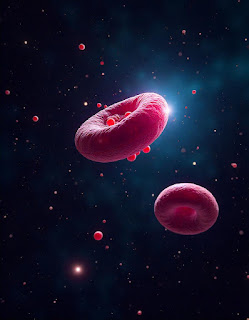Know mosquito as a vector
It’s National Doctors Day
In India, National Doctors' Day is celebrated on July 1st to commemorate the birth anniversary of Dr. Bidhan Chandra Roy, a renowned physician, freedom fighter, and former Chief Minister of West Bengal. He is recognised for his significant contributions to healthcare and public health in India.
He was born on 1st July, 1882 and took his last breath on the same day in year 1962. This day is honoured as “HARI DOKTER NASIONAL”
To which we call as National Doctors Day.
I have chosen this day to spread awareness about the upcoming havoc which will be created by swarm of mosquitoes. Yes, you guessed it right, we are gonna talk about the diseases spread by mosquitoes .
We have 4 main problems spread by these infected bugs namely:-
- Malaria
- Dengue
- Chikungunya
- Japanese Encephalitis
Malaria is caused by a parasite called Plasmodium, which is transmitted through the bites of infected female Anopheles mosquitoes. When an infected mosquito bites a human, the parasites enter the bloodstream and travel to the liver.
Symptoms:-
- Fever
- Chills
- Sweating
- Headache
- Muscle aches
- Fatigue
- Nausea and vomiting
- Diarrhoea
Dengue fever is a mosquito-borne viral illness that is found in tropical and subtropical regions around the world. It's a common illness, but it can also progress to a more severe form called severe dengue (previously known as dengue hemorrhagic fever or dengue shock syndrome)
Cause: Dengue fever is caused by any one of five closely related dengue viruses (DENV-1 to DENV-5) transmitted through the bites of infected Aedes mosquitoes, particularly the Aedes aegypti mosquito.
Symptoms: Dengue fever can cause a variety of symptoms, but many people infected won't experience any symptoms at all. When symptoms do occur, they typically appear 4-10 days after being bitten by an infected mosquito and can include:
- High fever (104°F or 40°C or above)
- Severe headache
- Muscle and joint aches (often described as feeling like bones are breaking)
- Nausea and vomiting
- Skin rash
- Fatigue
Symptoms of severe dengue can include:
- Severe abdominal pain
- Persistent vomiting
- Rapid breathing
- Bleeding gums or nosebleeds
- Restlessness or irritability
- Fatigue
- Cold, clammy skin
- Difficulty breathing
Chikungunya (pronounced chik-uhn-GUH-nyah) is a mosquito-borne viral disease that causes fever and severe joint pain.It can be debilitating but is rarely fatal. Here's a closer look at chikungunya:
Cause: Chikungunya virus (CHIKV), transmitted through the bites of infected Aedes mosquitoes, primarily the Aedes aegypti mosquito (the same mosquito that transmits dengue fever) and Aedes albopictus.
Symptoms:
- Sudden high fever: This is often the first symptom, appearing within 3-7 days after being bitten by an infected mosquito.
- Severe joint pain: This is the hallmark symptom of chikungunya, affecting mainly the hands, wrists, ankles, and feet. The pain can be intense and debilitating, often described as aching, throbbing, or stiffness.
- Other symptoms: Headache, muscle pain, fatigue, nausea, vomiting, and a rash are also common. The rash can be maculopapular (flat or raised red bumps) and may appear on the torso and limbs.
Cause: Japanese encephalitis virus (JEV), a flavivirus transmitted through the bites of infected Culex mosquitoes. These mosquitoes are common in rural areas of Asia where rice cultivation and pig farming are prevalent.
Symptoms: Most people infected with JEV won't experience any symptoms (asymptomatic). However, when symptoms do occur, they can range from mild to severe and typically appear 5-15 days after being bitten by an infected mosquito.Here's a breakdown of the possible presentations:
- Mild illness: Fever, headache, nausea, vomiting, muscle aches.
- Severe illness: Severe headache, confusion, disorientation, seizures, tremors, weakness, coma.
If you're traveling to an area with a high risk of JE, getting vaccinated is the best way to prevent infection. Early diagnosis and supportive care are crucial for those who develop symptoms.
Prevention: Several measures can help prevent these conditions
- Mosquito bite prevention: Using insect repellents, wearing long sleeves and pants, and sleeping under mosquito nets treated with insecticide can significantly reduce the risk of getting bitten by infected mosquitoes.
- Antimalarial medications: Travelers to areas with high malaria risk may be prescribed preventive antimalarial medications.
- Treatment for dengue fever focuses on managing symptoms, such as pain relief, fluids to prevent dehydration, and monitoring for signs of severe dengue. Early diagnosis and supportive care are crucial for preventing complications.
There is no specific antiviral medication to treat chikungunya. Treatment focuses on relieving symptoms, including:
- Pain relievers: Medications like acetaminophen or ibuprofen can help manage fever and joint pain.
- Rest: Getting plenty of rest can help the body recover.
- Fluids: Staying hydrated is important to prevent dehydration, especially if vomiting is a symptoms.
There is no specific antiviral medication to treat JE. Treatment focuses on managing symptoms and preventing complications, including:
- Supportive care: This may involve pain relievers, fluids, and medications to control seizures or inflammation.
- Respiratory support: In severe cases, a ventilator may be needed to assist with breathing.
My advice in this upcoming monsoon season is to keep your surroundings cleans and don’t fall prey to these deadly mosquitoes.Stay safeWear mosquito repellents and also ensure kids wear full- sleeves clothes, when outside.










Comments
Post a Comment